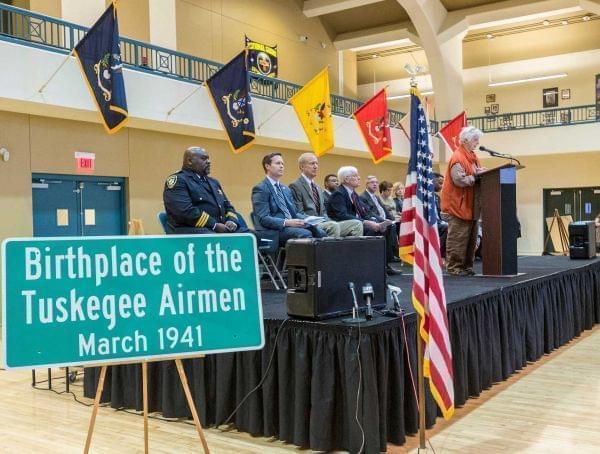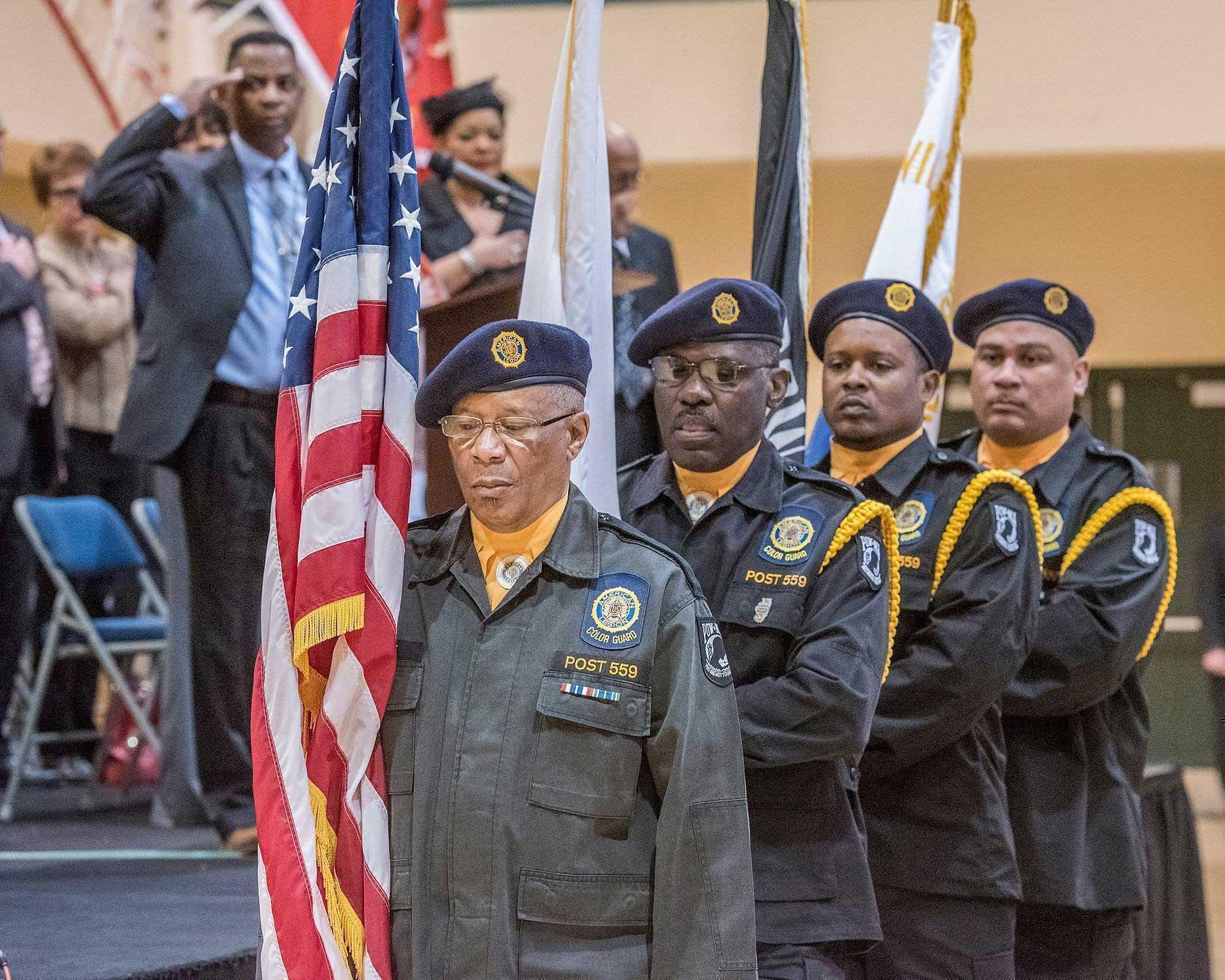Champaign County Celebrates Role In Fighter Pilots’ History

Champaign County Board Chair Pattsi Petrie addresses a large crowd at the Urbana National Guard Armory Thursday. Guests include Champaign Police Chief Anthony Cobb, Congressman Rodney Davis, and Illinois Governor Bruce Rauner. Darrell Hoemann/Midwest Center for Investigative Reporting
Four road signs entering the County now signify the area’s ties to the African-American pilots who flew in World War Two. The Tuskegee Airmen were initially known as the ‘99th Pursuit Squadron.’ The group started at the former Chanute Air Force Base in 1941 before training in Alabama.
Peter Thomas directs the National Guard-operated Lincoln’s Challenge Academy for at-risk youth, on the grounds of the former base in Rantoul. At Thursday’s celebration at the Urbana National Guard Armory, he challenged the crowd of 100 to make sure others know their history.
“I will charge each and every one of you today before you lay your head on the pillow tonight – you should go tell 5 to 10 people what happened here today, and they’re going to look at you like, ‘what?’," he said. "And some of them are going to come back and say ‘for real.?' Tell them the sign is on the highway.”
The crowd of 100 at Thursday's event got a sense of the road those pilots faced. Gov. Bruce Rauner noted that no other cities wanted the pilots after President Franklin Rooselvelt signed a law in 1939 expanding the Army Air Corps.
"Just one small symptom of the rampant racism that we in America are ashamed to admit and that has been an ongoing battle for generations," he said, noting both Detroit and St. Louis rejected them. "Rantoul Air Field said yes."
The signs that have been put up at U.S. Routes 136 and 150, and Illinois 47 are due in part to the efforts of Rob Gorham, who was taking photos at the former base in 2002.
"I was up in Rantoul shooting a B-25 bomber, and I couldn't find the keys to the padlock to get us in," he said. "I looked around, and there was a banner that read 'Home of the Tuskegee Airmen."
He them met with surviving members, later attending the Tuskegee National Convention in order to preserve the history.

Members of the American Legion Post 559 Honor Guard present the colors at Thursday's event.
James Warren, Jr. says his father was part of the 477th Bombardment group, a little known arm of the Tuskegee Airmen. He says the unit was arrested at Freeman Field, near Seymour, Indiana, for protesting the segregation of black pilots, and it was another 50 years before their names were completely cleared.
“In 1995, the records of all those participants were corrected by the US Air Force due to a book that my dad published – called the Tuskegee Airman’s Mutiny at Freeman Field," he said. "So that’s his claim to fame, and I’m glad to be part of it. Despite the racial climate in the country, a lot of those talents that were achieved by these individuals called the Tuskegee Airmen were never realized in the civilian world. Even though a lot of them went on to become doctors, lawyers, teachers, even very important executives in major corporations.”
Some of this history was preserved at the Chanute Air Museum, which closed its doors last fall for financial reasons.
Ken Rapier, President of the Chicago "DODO" Chapter of the Tuskegee Airmen, says his heart is heavy, knowing that resource has been lost.
The unit was named for the extinct bird that couldn't fly because, for years, pilots weren't allowed to fly commercial flights despite proving themselves during World War II.
“What we plan to do for the rest of our lives – to preserve the legacy of the Tuskegee Airmen – is to get their story told to everyone who will listen because it’s a story for everyone who will listen, because it’s a story for everyone," Rapier said. "The Tuskegee Airmen are not just African-American history, not something that should just be celebrated during Black History Month. The Tuskegee Airmen are United States history – they’re the history of America."
